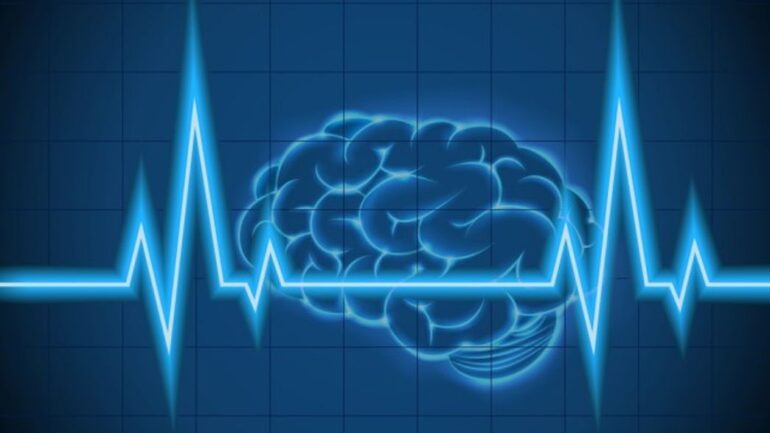TL;DR:
- Neurotechnology, an AI application, raises concerns about privacy and human rights.
- The UN emphasizes the need for an ethical framework to protect individual liberties.
- Neurotechnology involves scanning, repairing, and augmenting the human brain.
- Advancements in machine learning and AI have made neurotech ethically contentious.
- The UN hosted a conference to address the ethical issues surrounding neurotechnology.
- UNESCO’s Director-General expresses concerns about brain access and manipulation.
- Regulatory bodies are working to create rules for the AI sector.
- Neurotechnology extends beyond brain chips and can manipulate intentions and emotions.
- AI tools are being used to interpret brain signals and pose privacy risks.
- Responsible guidelines and regulations are necessary to address ethical concerns.
Main AI News:
The swift progression of neurotechnology, a controversial application of artificial intelligence, has emerged as a pivotal topic of discussion within the realms of privacy and human rights. As this field of technology continues to advance rapidly, the United Nations (UN) has joined the call for an ethical framework that safeguards individual liberties.
Neurotechnology and Its Ethical Implications
Neurotechnology, though not a new concept, has witnessed remarkable growth as engineers strive to develop technologies that can scan, repair, and enhance the human brain and nervous system. However, recent breakthroughs in machine learning and AI models have propelled neurotech into ethically contentious territories.
In response to these challenges, the UN recently hosted the International Conference on the Ethics of Neurotechnology in the vibrant city of Paris. This event provided a platform for policymakers, AI specialists, civil groups, and private businesses to engage in the discourse surrounding the ethical dilemmas associated with neurotechnology.
Audrey Azoulay, the Director-General of UNESCO, expressed her concerns ahead of the conference. She emphasized that while neurotechnology holds the potential to address numerous health issues, it also possesses the capability to access and manipulate individuals’ brains, extract information about their identities and emotions, and consequently jeopardize fundamental rights such as human dignity, freedom of thought, and privacy. Azoulay underscored the urgent need for establishing a comprehensive ethical framework at the international level, similar to what UNESCO has accomplished for artificial intelligence.
A Race for Regulation
Regulatory bodies worldwide are scrambling to establish guidelines for the AI sector. Notably, prominent companies like OpenAI have even begun to resist AI regulation. With the technology becoming increasingly intimate, it seems inevitable that further disagreements will arise.
Beyond Brain Chips: Unveiling the Depths of Neurotechnology
During the conference, Gabriela Ramos, UNESCO’s Assistant Director General for social and human sciences, shed light on the broader scope of neurotech. She emphasized that it extends beyond early-stage, attention-grabbing technologies. Ramos envisions a future where algorithms enable us to decode people’s mental processes and directly manipulate the brain mechanisms underlying their intentions, emotions, and decisions. While projects like Elon Musk’s Neuralink and its brain-computer interface dominate the public’s perception of neurotechnology, more subtle applications that interpret and manipulate thoughts without physical intervention are already in existence. Mariagrazia Squicciarini, the lead author of a UNESCO report, aptly stated, “When you add AI, you are putting neurotechnology on steroids,” highlighting the immense potential for both positive and concerning outcomes. For instance, one research team employed AI to interpret a subject’s auditory experiences based on their brain’s electrical signals.
However, the researchers cautioned that future advancements might enable such technologies to bypass the need for voluntary cooperation. This raises concerns regarding mind control and the ethical boundaries that must be established to ensure the responsible use of neurotech.
Accessible AI Tools: Unveiling the Veil of Privacy
Interestingly, the mind-reading neurotech mentioned earlier utilizes widely accessible AI tools. The research team developed their model using OpenAI’s GPT-1, a precursor to GPT-4, the powerful engine behind the popular ChatGPT chatbot. Additionally, they harnessed various algorithms freely available online, training their model using datasets that included sentences from Reddit and transcriptions of New York Times podcasts. These advancements serve as a stark reminder that AI-related privacy issues are not mere future hypotheticals but rather pressing concerns that require immediate attention.
OpenAI, for instance, currently faces a class action lawsuit alleging the unauthorized collection of personal data. Similarly, numerous social media giants have faced accusations of mishandling user data to train their AI models. Instances of AI being used to read and manipulate individuals without informed consent are already a reality. Addressing these concerns necessitates the establishment of robust ethical guidelines and proactive regulatory measures.
Conclusion:
The rapid advancement of neurotechnology and AI presents both opportunities and challenges in the market. While there is immense potential for solving health issues and understanding the human brain, ethical considerations must be prioritized. The establishment of an international ethical framework and proactive regulatory measures will be crucial in ensuring responsible use and protecting individual rights. Businesses operating in this market should be mindful of these developments and adhere to robust ethical guidelines to build trust and mitigate potential risks.

